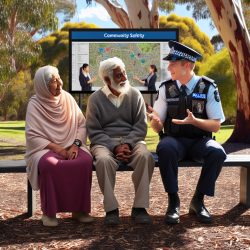Introduction: The Intersection of Refugee Rights and Speech Language Pathology
The 1951 Refugee Convention has long been a cornerstone of international law, providing a framework for the protection of refugees worldwide. However, as Seyla Benhabib's research article, "The End of the 1951 Refugee Convention? Dilemmas of Sovereignty, Territoriality, and Human Rights," suggests, the convention faces significant challenges in today's globalized world. As practitioners in speech language pathology, understanding these challenges can enhance our ability to provide effective online therapy services to children in refugee populations.
Key Insights from the Research
Benhabib's article highlights the dual movement of deterritorialization and territorialization, which threatens the efficacy of the 1951 Convention. This dual movement reflects the tension between state sovereignty and international human rights, a tension that is particularly relevant for practitioners working with refugee children.
- Deterritorialization: The rise of the internet and global media has led to the deterritorialization of many domains, challenging traditional notions of state control.
- Territorialization: Despite these changes, territorial presence remains crucial for the entitlement to human and citizens' rights, impacting how refugees are treated under international law.
Implications for Practitioners
For speech language pathologists providing online therapy to refugee children, these insights underscore the importance of understanding the legal and social contexts in which these children live. Here are some practical steps practitioners can take:
- Stay Informed: Keep abreast of changes in international law and refugee policies that may affect your clients.
- Advocate for Rights: Use your platform to advocate for the rights of refugee children, ensuring they receive the support and services they need.
- Tailor Interventions: Develop culturally and contextually appropriate interventions that consider the unique challenges faced by refugee children.
Encouraging Further Research
While Benhabib's article provides a comprehensive analysis of the challenges facing the 1951 Refugee Convention, there is still much to learn about how these challenges specifically impact refugee children and their access to speech language pathology services. Practitioners are encouraged to engage in further research to explore these intersections and develop innovative solutions.
To read the original research paper, please follow this link: The End of the 1951 Refugee Convention? Dilemmas of Sovereignty, Territoriality, and Human Rights.










